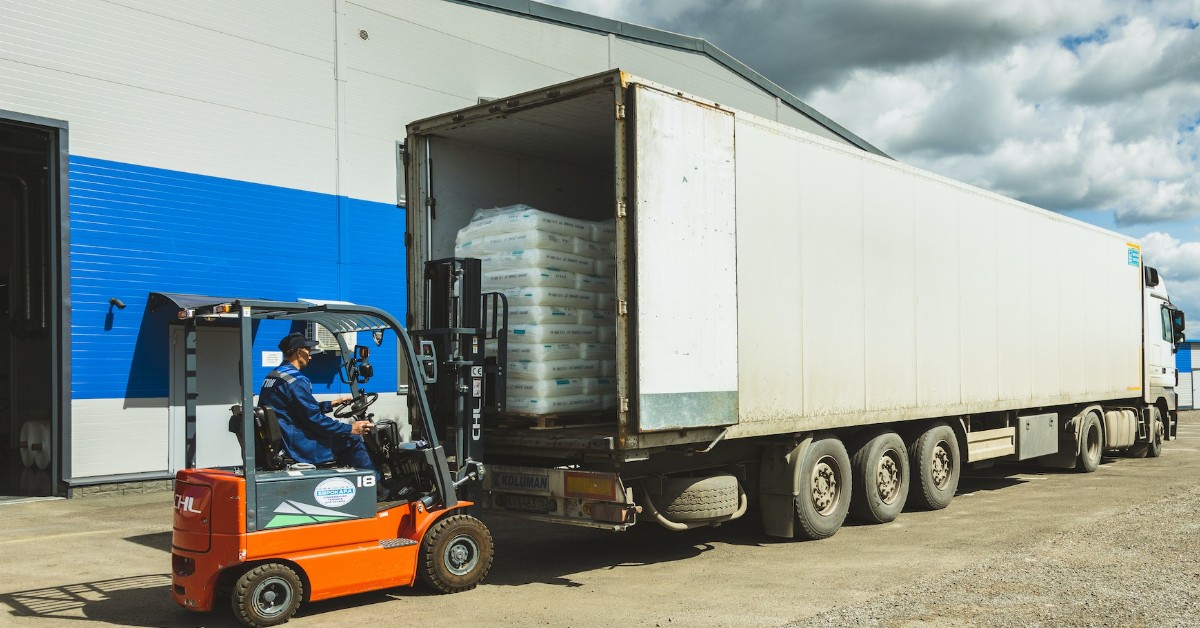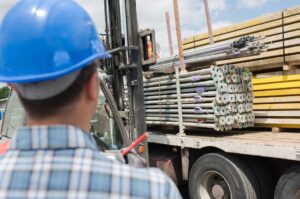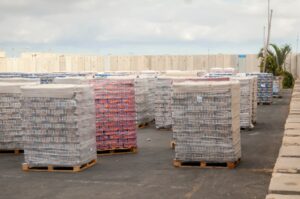4 Things to Know About Dry Freight Shipping
- Posted on 20 Dec, 2022

4 Things to Know About Dry Freight Shipping
Working with a variety of shippers, we come across some frequently asked questions about dry freight shipping and will share our answers with you. The questions can be grouped in four broad categories:
- What is a dry van?
- When do shippers use dry vans?
- What products are carried in dry vans?
- What are some benefits of dry vans?
What is a Dry Van & What are its Dimensions?
A dry van is a type of truck-trailer that is enclosed to protect shipments from outside elements. The dry van freight shipping container typically has metal coating all-round, wooden flooring and swing open doors.
By comparison, the cargo on a flatbed truck is exposed to the environment. The cargo in a refrigerated truck, such as produce, meat or pharmaceuticals, requires more exacting climate control. Dry van freight is often palletized and is not oversized. Box trucks have an open cargo area that facilitates carrying larger items.

Full-size dry van trailer dimensions measure 53 feet long with a height and width of 8 and half feet. Referred to as the “53-foot trailer“, this is the most popular dry van. It has dimensions to accommodate up to 26 standard pallets and can haul up to 45,000 pounds.

There are also “pup trailers” which are typically 28 feet in length, give or take a foot. Width and height, like full-size trailers are between 8 and 9 feet, as well. They can carry about half the weight or dimension of their bigger brethren, or slightly over 11 tons and up to 14 standard-size pallets.
What Cargo is Suitable for Dry Van?
Cargo on dry vans do not need the temperature control offered on a refrigerated truck (or reefer). Because the shipment is enclosed on the top, bottom and sides, cargo is kept dry and protected from wind, sun, rain, or road debris. Ideal cargo for dry freight includes:
- consumer packaged goods
- non-perishable food or beverage
- clothing
- furniture
- plastic, paper & packaging
- building material
- palletized or boxed goods
- machinery
- raw material
- certain electronics
Dry vans provide more protection than box trucks while requiring less equipment than refrigerated trucks, thereby offering fair value between protection and cost.
When do Shippers use Dry Vans?
Dry vans can be deployed for short distance or long-distance hauls as well as full truckload (FTL) or less-than-full truckload (LTL) shipments. Dry freight is suitable for load consolidation or cross docking, as well.
Now that you know a little bit more about dry freight, you can better plan your shipments. Of course, there is no need for you to become a logistics expert when you can rely on our experienced staff. If you have product that needs shipping, especially if you are pressed for time or have special handling requirements, A & Z Trucking is here to help. Our top-rated service offers performance, safety, value, planning and even real-time shipment tracking. We work with top shippers and screen for the most professional truckers.
What Our Customers Say
What I appreciate most about Cody and the team at A&Z is their ability to offer solutions to challenges that most trucking companies won’t touch. Whether it be consolidating several West Coast pickups to one location, reworking trailers, offering LTL solutions, or even just handling full truckload shipments, the team at A&Z is always transparent and prompt with everything that they do
Phillip F, Capital City Produce





